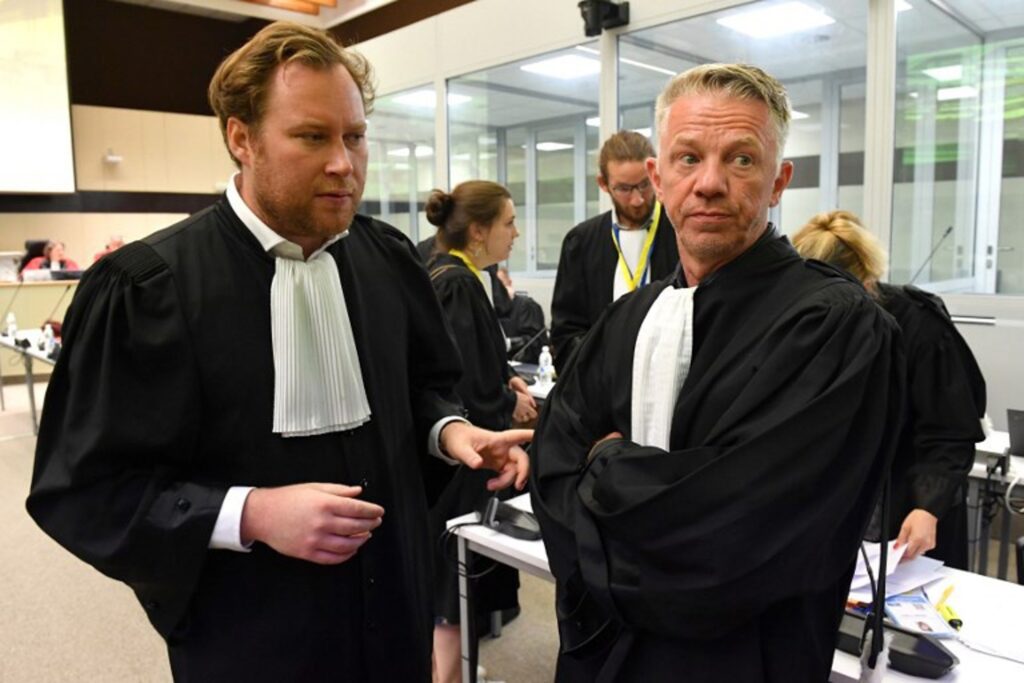The questioning of investigators at the Brussels Assise Court, charged with judging the attacks of 22 March 2016, came to a close on Thursday evening with a single question from Mr. Xavier Carrette, attorney for Ibrahim Farisi.
Earlier, investigation coordinator Grégory Moitroux presented an assignment requested by the lawyer, which consisted of an enlargement of photos dating from 23 March 2016.
That was the date on which Farisi was recorded by surveillance cameras at the building on Avenue des Casernes in Schaerbeek emptying the flat that his brother, Smail, had lent to the El Bakraoui brothers. The aim was to get a close-up of Ibrahim Farisi’s hand, which was gloved, to try to see a possible bandage covering a wound and explain the presence of the glove.
“After the presentation of the witnesses about my client, which dates back to Tuesday of last week, I was left with three questions,” the attorney then announced. “The first one was related to the duty of investigation that we just mentioned. I will put the second to a witness who will come later. So I am left with just one: you who met Ibrahim Farisi on multiple occasions at the time and saw his evolution until today, what can you tell me about this evolution?”
Suspect turns to alcohol following his release from jail
“After his release (following his imprisonment in the Brussels bombings case – Editor’s note), we see Ibrahim Farisi sinking into alcohol and other acts such as assaults, fights…,” investigating judge Berta Bernardo Mendez said. “He shows more aggression, always in a drinking context. If you come across him in the morning, it’s fine, but later in the day, it’s difficult.”
“At the time I heard him, I noticed a lot of difficulty conceptualising things, so the dialogue was complicated,” investigating judge Olivier Leroux said. “He expressed himself little and badly.”
Finally, the police officer who interviewed Farisi was invited by the lawyer to read an extract from the interview in which the accused first asserted that his brother had nothing to do with the attacks.
Difficulty finding work
He then added that when he got out of prison he was “disoriented” and that he had difficulty finding work even though many people had helped him.
In conclusion, Attorney Carrette asked the investigators for “a favour”: to have access to his client’s raw telephone records. This was granted.
The president of the court, Laurence Massart closed the hearing and the testimony of the investigators by asking each of them if they stood by their statements. They all answered in the affirmative.

